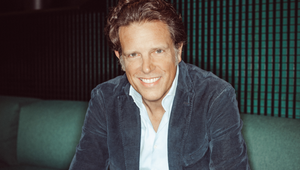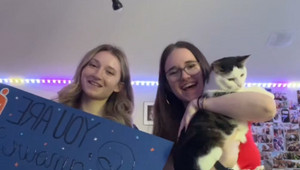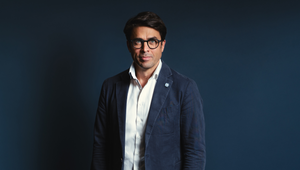
How a French Fruit Company is Transforming the Lives of Autistic People

Andros launched the ‘Autism Can Work’ programme with Serviceplan France in September 2017. As they describe it, it’s “the first care program that is also a career program.” The French food company, known for making fruit-based products such as jams, juices and desserts, took a bold risk by hiring autistic people in its factories, on the same terms as any other worker.
It turned out that these employees were as productive and efficient as any worker. With a job and a salary, like any citizen, they became much happier and independent in society.
Launched with a digital toolkit platform where recruiters could find information about the Andros experiment, it has since made great progress. On top of transforming people’s lives, it also even picked up a Bronze Lion at Cannes in June, in the Brand Experience & Activation category.
LBB’s Alex Reeves checked in with Dimitri Guerassimov, chief creative officer and joint partner at Serviceplan France, to hear more about the project and find out how it was developing.
LBB> How did the idea with Andros come about?
DG> From working with autistic people in France for a long time came the insight that they are often misunderstood and mistreated: what we think of as being their disorders can in fact be seen in a different light. And that by changing our way to see people with autism, we can change the way we treat them.
LBB> How did it develop into the way you eventually implemented the programme and what were the main considerations along the way?
DG> With Andros, one of our founding clients, we created an SEO programme that helps the cause of people with autism by demonstrating that, in fact, what we see as their disorders can be seen as very useful skills. And we are not talking about the few brilliant people with Asperger syndrome, who are employed in the area of cyber-security or similar roles, but about the big majority of them: people with severe non-verbal autism. The ones that are parked in care centres, and considered impossible to socialise or employ.
LBB> How has the programme developed since it launched?
DG> This isn’t a marketing stunt, but a long term commitment from Andros. So the initiative to hire people with severe autism in Andros’ factories started to be implemented a few years ago, and the Autism Can Work programme is the latest evolution of this initiative. The aim of this programme is to provide companies in France with the help and tools needed to hire people with Autism. This is a first-of-its-kind programme in France.
LBB: What were the biggest lessons you've taken from the experience?
DG> The biggest lesson is that you have to push forward the ideas in which you deeply believe, despite the obstacles and the naysayers. Thanks to what has been accomplished, we now know not only that it is possible to deeply change the everyday life of people with severe autism, but also that it is possible to give them a fulfilling life and a real social value.
LBB> What is the most recent development? Are you hoping to take it further?
DG> A giant leap was made in April this year, when the French government publicly endorsed Andros’ initiative because it helps to drastically reduce the cost of people with severe autism for the state. Prior to the government launching a €340 million strategy to improve the rights of people with autism, the French state’s treatment of autistic people had been denounced by the United Nations as being ‘50 years behind’ the rest of the world.
So to take it further, we need to encourage more and more companies to hire people with deep autism: the programme is only starting to spread its wings. And there is a lot to gain for companies, the state, and of course people with severe autism.















